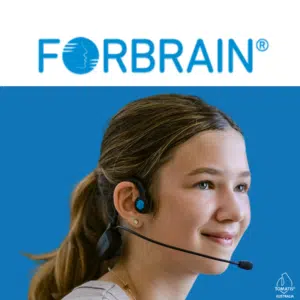The ear plays an important role in balance and overall motor function of the body. One part of the ear, known as the vestibule, manages our motor skills, laterality, regulation of muscle tone, and verticality. It is also responsible for the mechanisms controlling coordination and rhythm.
Balance and coordination problems are few of the several psychomotor difficulties concerning the delay in the acquisition, coordination, execution of gestures, left-right directions, and verticality.
The Tomatis® Method acts on the brain-body functions through the ear by means of its direct action on the vestibule. It promotes the transmission of deep and rhythmic sounds with specific frequencies of filtered or gated music.
The sound vibrations enter the ear, by bone and air conduction, then travels widely throughout the brain and the body. This delivers a positive effect on the general mechanisms of perception and motor functions. In this manner, it can directly intervene in difficulties with rhythm, coordination, spatialization (sense of time and space), balance and body schema (body movement in space).



